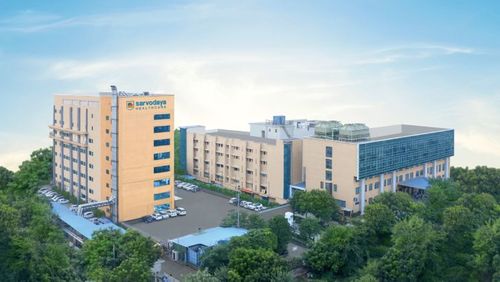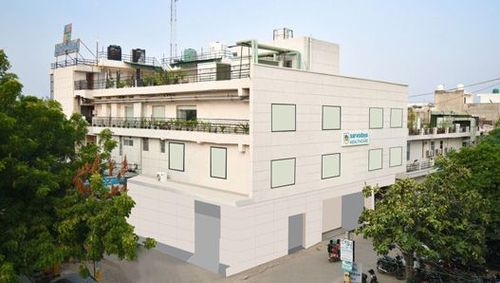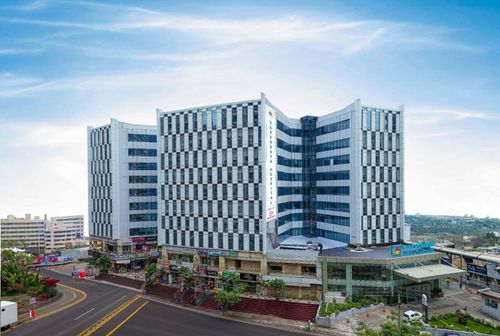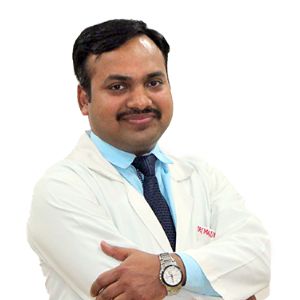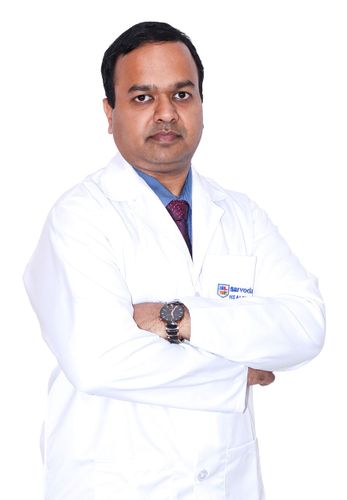Overview
Recurrent Shoulder Dislocation occurs when the shoulder joint repeatedly slips out of place, often after an initial traumatic injury. This condition is common in young, active individuals and athletes due to the shoulder's wide range of motion and underlying anatomical weaknesses. It can lead to chronic pain, instability, and limited mobility, disrupting everyday life and sporting activities.
At Sarvodaya Hospital, our orthopaedic specialists provide comprehensive care, including shoulder arthroscopy, ligament reconstruction, and minimally invasive stabilisation techniques. Every treatment is complemented by a structured rehabilitation program to restore strength, function, and long-term shoulder stability.
Symptoms of Recurrent Shoulder Dislocation
- Repeated episodes of shoulder dislocation
- A sensation of the shoulder "giving way"
- Persistent shoulder pain or aching
- Weakness in the arm or shoulder
- Limited range of motion
- Clicking, grinding, or catching
- Visible deformity or bulging
- Swelling or bruising
Causes of Recurrent Shoulder Dislocation
- Previous shoulder dislocation or injury
- Weak or torn ligaments
- Repetitive overhead activities
- Congenital joint hypermobility
- Poor post-injury rehabilitation
- Degenerative joint conditions or muscle imbalance
- Improper technique during high-impact sports
Diagnosis of Recurrent Shoulder Dislocation
Accurate diagnosis is key to preventing repeated dislocations and selecting the right treatment approach. At Sarvodaya Hospital, the best orthopaedics doctor in Faridabad uses advanced clinical evaluation and imaging tools to assess the extent of shoulder instability and recommend the most effective course of treatment.
- Detailed physical examination – to evaluate joint laxity, movement limitations, and pain points
- Patient history review – focusing on how often dislocations occur, the triggers, and the recovery duration
- X-ray imaging – helps detect bone alignment issues, past fractures, or joint deformities
- MRI scan – used to examine soft tissue damage, such as labral tears or ligament injuries
- Arthroscopy– in complex cases, minimally invasive internal evaluation of the shoulder joint
Prevention & Lifestyle Modification
Accurate diagnosis is key to preventing repeated dislocations and choosing the most effective treatment plan. At Sarvodaya Hospital, the best orthopaedics doctor in Delhi NCR uses advanced clinical evaluation and imaging technologies, such as MRI and dynamic testing, to assess the degree of shoulder instability and determine the most suitable non-surgical or surgical intervention.
- Avoiding high-risk sports or activities involving repetitive overhead motions or impacts
- Use of braces or supports during physical activity, especially during early recovery
- Practising proper posture and body mechanics in daily tasks and workouts
- Maintaining shoulder flexibility with guided stretching routines
- Ergonomic changes at work to reduce strain and prevent overuse injuries
Pre- & Post-Surgery Modifications
Before Surgery / Treatment- Avoid strenuous upper-body activities
- Apply cold compresses
- Wear prescribed immobilisers or slings
- Follow a guided physiotherapy plan
After Surgery / Treatment
- Strictly follow post-op immobilisation
- Begin physiotherapy under expert supervision
- Avoid lifting, pushing, or overhead movements
- Incorporate low-impact exercises
- Attend all follow-up visits


